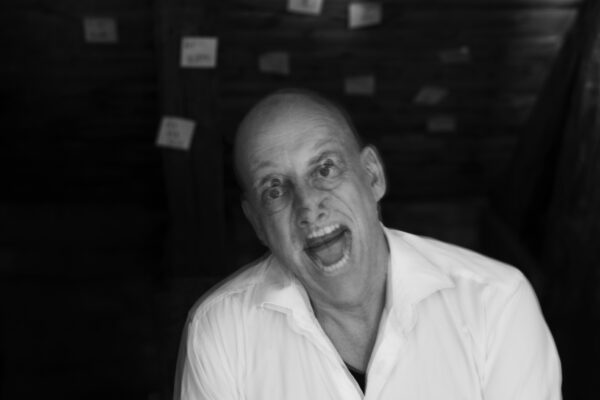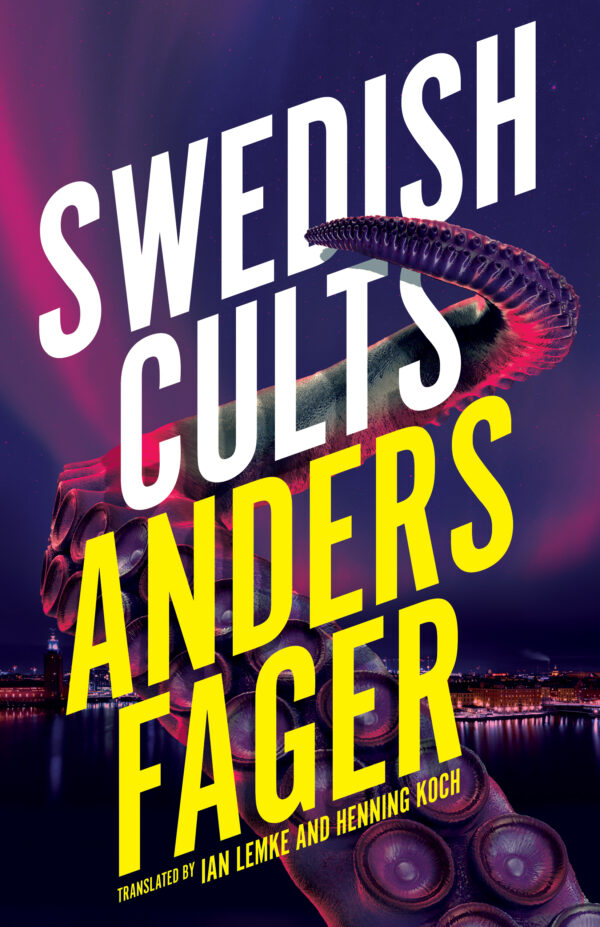
Welcome to my weekly Author Spotlight. I’ve asked a bunch of my author friends to answer a set of interview questions, and to share their latest work.
Today: Anders Fager was not born as much as he fell out into rather bleak 60’s Sweden. He grew up wanting to become an astronaut and then a rockstar and eventually settled for being an army officer. He was also involved in the infant steps of the Swedish role-playing game industry. He made his debut as a writer in 2009 and his first book, Swedish Cults, is now hailed as a classic of Swedish horror. He lives in an attic in central Stockholm.
Thanks so much, Anders, for joining me!
J. Scott Coatsworth: When did you know you wanted to write, and when did you discover that you were good at it?
Anders Fager: I have, despite being an untreated dyslexic, been writing since I was about eleven. I never really thought of becoming a writer, but I wrote lyrics for songs, stories for games and whatever else that caught my interest. I’ve written something like three and a half full-length novels over the years, for my amusement only. None of them will ever see the light of day but they taught me the trade. I didn’t quite understand how good I was or what impression I made until the reviews for my first book started to come in.
JSC: What was your first published work? Tell me a little about it.
AF: My first published book was the short story collection Swedish Cults. It came out this year in the United States, but it was released in Sweden in 2009. It is five longer and four very short stories. All set in the same universe, a kind of Lovecraftian modern day Sweden. The realization that the whole thing is somehow connected grows on you as you read. In the end, the larger picture comes out, even better than I thought. I’ve written six books in that universe and will probably write a final one when I get around to it.
It’s also important to note that though the stories are inspired by and to some extent populated by Lovecraft’s writings, I do not write like him. If forced at gunpoint to admit that I’m trying to emulate anyone else, I would probably confess to being very inspired by Clive Barker and James Ellroy. That doesn’t make for Lovecraftian ramblings.
JSC: If you could tell your younger writing self anything, what would it be?
AF: My life was full of stupid decisions and stupid actions until I was about 35. Still all those mishaps are what makes you a person and an artist. I’m not sure that twenty-one-year-old me would benefit from being told to practice more on the writing stuff and go easy on the drugs, as then you will become a writer much sooner. Or would that be counter-productive? Like suddenly, there is a prophecy to be fulfilled?
JSC: Do you reward yourself for writing, or punish yourself for failing to do so? How?
AF: I prefer to punish other people and I do not need much reason for it.
More seriously, I do not believe that writing is some kind of emotional mysterious whatever that is so DRAINING that the writer needs “rewards” for managing a day of it. When people talk that way about writing, I feel like asking them why they insist on doing it if it is so hard and draining. Why don’t they grow flowers or something instead?
JSC: Do you read your book reviews? How do you deal with bad (or good) ones?
AF: I enjoy reading reviews as long as they are reasonably well written. It’s always interesting to read about how your work comes across, and it doesn’t matter really if the review is good or bad, as long as they sort of get the idea. You can’t be everybody’s cup of tea. I’ve gotten some really bad reviews that have been hateful to the point of being amusing, and some very positive reviews that have been so poorly written that they have been amusing too. The most tedious reviews are the ones that mostly are about the reviewer’s knowledge about Lovecraft.
JSC: Are there underrepresented groups or ideas featured if your book? If so, discuss them.
AF: I mostly write about monsters or ”cultists.” The stories are from their point of view, and instead of trying to make them funny or sexy, like some Hannibal Lecter or Freddy Krueger, I try to make them believable and likable. How is that for caring for underrepresented groups?
Another thing I’ve learnt over the years is that if one, as I do, “looks the norm,” people don’t want to talk about your queer or otherwise underrepresented characters. For some reason, it’s awkward to ask a seemingly straight middle-aged man questions about that gay man he has written about. It’s actually gives me kind of a freedom.
JSC: What is the most heartfelt thing a reader has said to you?
AF: A while back, when I did a talk at a library in Stockholm, a group of young “unicorn-kids” started asking questions about the various very queer relationships in a novel I’ve written called for the love of goddess. Once they realized that I wasn’t as old or stale as I perhaps looked, we had a great and very warm conversation about these relationships, and it felt a bit like they took me into their hearts. It was touching. What 50+ me had written somehow made sense to them.
JSC: Let’s talk to your characters for a minute – what’s it like to work for such a demanding writer?
AF: I usually think about it the other way around. Which ones of my recurring characters are easy to work with and which ones are absolute prima donnas? It’s another notion from, dare I say, less proficient writers, that your characters live a life of their own that you have no control over. But it’s all about you learning how to write them. Some of them develop and become second nature to you as you go, while some of them are a challenge every time you want to include them in a story.
JSC: What’s your core motivation in Swedish Cults?
AF: People ask me that from time to time. What is this particular book about? What is “the cult’s” purpose or message? And to be honest I have no idea. I have no mission or higher purpose more than the desire to make people go “wow”.
JSC: What are some day jobs that you have held? If any of them impacted your writing, share an example.
AF: I spent six years as an infantry officer and that taught me, like all young slobs say, discipline and how to work hard. Being a reservist since then has been good for providing me a view of life in the world outside ”the cultural clique” which I have become a part of.
JSC: What are you working on now, and what’s coming out next? Tell us about it!
AF: I’m currently working on some stuff for TV that, at the moment, is shrouded in secrecy. I also work with a couple of adventures for the role playing game Kult, and am writing a mystery-novel taking place in Stockholm’s gay circuit in the 1890s. It has no tentacles, but a lot of naked men in it.
And now for Anders’ book: Swedish Cults:
Forget everything you think you know about Sweden. In Anders Fager’s stories, Sweden is revealed as a place where dark and unimaginable things happen. Where deep in the woods bloody sacrifices are made to ancient and monstrous deities. Where two young people’s road trip to visit their grandmother takes a turn for the bizarre and nightmarish. Where a woman’s comfortable middle-class life is suddenly upended when her boyfriend develops a mysterious illness that leaves him with a constant erection and speaking in strange tongues. Where an avant garde artist discovers the veil that separates Stockholm from the shadowy city of Carcosa.
First published in Sweden in 2009, Swedish Cults has become an underground horror phenomenon in its native country and has also appeared in Italy and France, where its publisher described it as ‘Swedish Lovecraft on acid’. This first-ever English edition makes this cornerstone volume of modern Scandinavian horror available at long last to a wider audience.
Publisher/Universal Buy Link | Amazon
Excerpt
”Then they’re in among the seagulls. In a cloud of hysterical
birds. The squawking overpowers everything else. They get
a glimpse of what’s in the water. A dark mass floating, just
under the surface. Half a cable length in front of them. A
mess of bubbles and oily water. Wikman shouts to kill the
engine. He gets the impression that there’s wreckage floating
just below the water. Or a hot spring. He saw one off the
coast of Iceland once. They drift into the eye of the seagull
storm. Then they see it. Everyone on the bow can see.”

